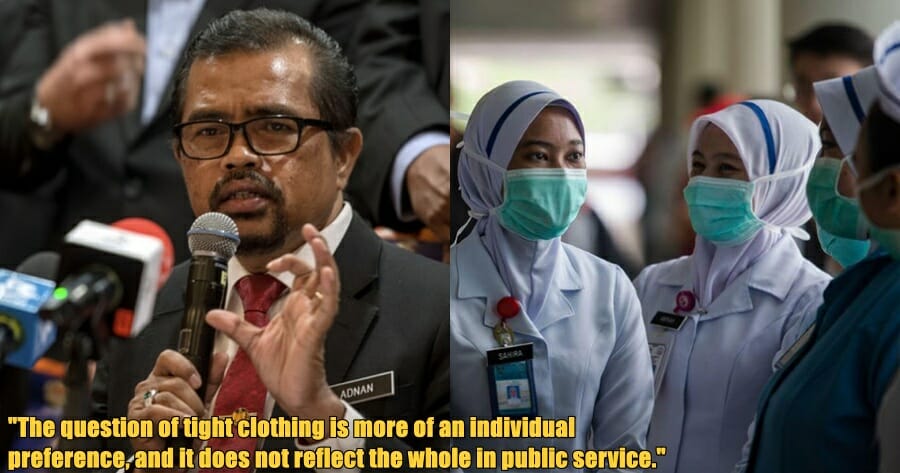Recently, an opposition MP drew flak after complaining that the uniforms of nurses were “too tight” and not syariah-compliant.
His comments drew backlash from other politicians, medical staff and the public, who criticised him for his sexist comments and told him to focus on more important matters, such as healthcare reforms.
The president of the Congress of Unions of Employees in the Public and Civil Services (Cuepacs) has since slammed politicians for turning it into an issue.

According to the New Straits Times, Datuk Adnan Mat said politicians should emphasise more pressing matters instead of discussing isolated cases regarding nurses’ tight dressing.
“The current attire of wearing long pants and long-sleeved shirts is polite and in compliance with the religious demands. The design also facilitates the frequent physical movement that nurses have to engage in during their daily duties.”
Adnan said that the view expressed by the PAS MP during the Dewan Rakyat sitting last week should be accepted positively and not be used to gain political mileage.
“Cuepacs views the issue as an isolated case, and it doesn’t need to be exaggerated since the dress code for nurses in public service is in accordance with the government guidelines,” he explained.
“The question of tight clothing is more of an individual preference, and it does not reflect the whole in public service,” Adnan added.
Meanwhile, he said it is the responsibility of the head of the department to warn nurses who wear tight uniforms and ensure that the ethics of their respective staff comply with the set guidelines.

Based on the feedback Cuepacs received from nurses, he shared that there is a need for the Health Ministry to standardise the quality of cloth provided to nurses in all states.
“The feedback received by Cuepacs stated that the quality of the cloth was not the same between the nurses in the Peninsula, Sabah and Sarawak, even though they were all provided by the ministry,” he said.
“This needs to be given firm emphasis and addressed, especially for suppliers who get these supply contracts,” he said, adding that payment for stitching should also be paid when receiving the fabric.
“So we should prioritise more pressing matters involving the welfare of these civil servants and make sure it is taken care of.”
What do you think of his statements? Let us know in the comments section.
Also read: Ipoh School Called Out for Disallowing Sarees to be Worn at Celebration Due to ‘Hot Weather’








































